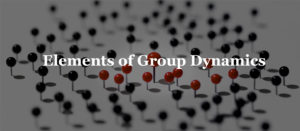Reply 1
I agree that It is clear that the willingness of Carlos Ghosn to turn Nissan from a loss-making company to a profitable one shows his ability to transform. Yukl (2013) states three forms of leaders in transformation culture: “idealized power, intellectual stimulation, and individualization” (pg 276). Ghosn displayed both influential and intellectual simulation that was idealized.
I feel. the case reports that before embarking on his turnaround plan, which demonstrates his idealized control, he had meetings with staff, suppliers, and other stakeholders. Furthermore, his ability to make his followers realize that Nissan’s problems arose from high costs, the solution of which was to slash the workforce, demonstrating a high degree of analytical simulation.
The analysis is correct that when he joined Nissan for the first time, he vowed to leave if in 24 months he was unable to turn the business around. In his mission, he remained focused. He was the one who was determined. In addition, the case states that “Ghosn understood that if they were dictated by him and the experts he brought with him from Renault, major changes would not be successful.”
It’s true that he had also proven to be a good leader. He shows that listening to local people and knowing their culture is significant, but it is not a must-see that you accept that culture. Ghosn knew he was likely to face rejection as an outsider and that’s why he built cross-functional teams to shape Nissan’s society.
On ethical grounds, he was also intact. In fact, due to his European heritage, Ghosn came from a low-power distance community, but Asian countries are societies of relatively high-power reach. As defined by Ling and Hauck (2017), Ghosn used the ETHICS appropriately. Eventually, he thought ahead and knew that the organization could be turned around, a justification he promised to quit if he failed to do his job.
Works Cited:
Ling, T. J., & Hauck, J. M. (2016). The ETHICS Model: Comprehensive, Ethical Decision Making.
Yukl, G. A. (2013). Leadership in Organizations. Harlow: Pearson
Reply 2:
In my opinion, Ghosn did what he thought was best for the company and opened the current company culture’s eyes with his tactics and strategy. Yukl explains ten functions that correlate with effective leadership. When it came to Nissan, Ghosn in many ways made the correct decisions and brought forth these functions.
In addition, he built alignment with priorities and tactics such as forming cross-functional groups, creating a new factory model, and cost of purchasing. He also realized that it would be impossible to lay off current employees, but he gave reason and logic behind it and tried to minimize adverse effects on staff through the sale of subsidiaries and the use of natural attrition, early retirement, and part-time work opportunities at other company facilities.
I believe their business tactics in Japan could be a little different than our regions, and Ghosn understood that. A number of remarkable things Ghosn has done. What Ghosn has done an excellent job as a Dilemma Analysis. He understood the environment and knew that it had to change to save the organization even though that meant going against the normal corporate and cultural practices before.
Works Cited:
Ling, T. J., & Hauck, J. M. (2016). The ETHICS Model: Comprehensive, Ethical Decision Making.
Yukl, G. A. (2013). Leadership in Organizations. Harlow: Pearson



